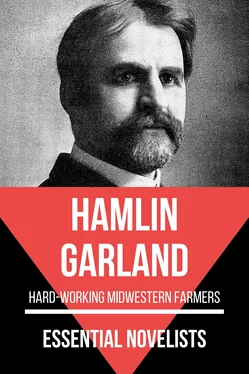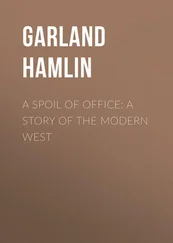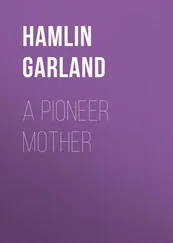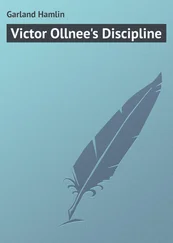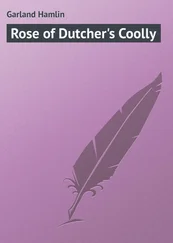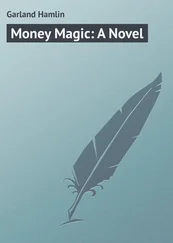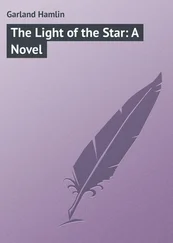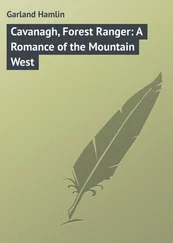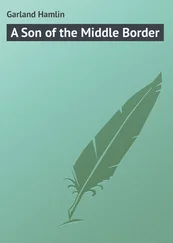Though but a shaggy colt in those days, I acknowledged a keen longing to join in the parties and dances of the grown-up boys and girls. I was not content to be merely the unnoticed cub in the corner. A place in the family bob-sled no longer satisfied me, and when at the "sociable" I stood in the corner with tousled hair and clumsy ill-fitting garments I was in my desire, a confident, graceful squire of dames.
The dancing was a revelation to me of the beauty and grace latent in the awkward girls and hulking men of the farms. It amazed and delighted me to see how gloriously Madeleine White swayed and tip-toed through the figures of the "Cotillion," and the sweet aloofness of Agnes Farwell's face filled me with worship. I envied Edwin Blackler his supple grace, his fine sense of rhythm, and especially the calm audacity of his manner with his partners. Bill, Joe, all the great lunking farm hands seemed somehow uplifted, carried out of their everyday selves, ennobled by some deep-seated emotion, and I was eager for a chance to show that I, too, could balance and bow and pay court to women, but—alas, I never did, I kept to my corner even though Stelle Gilbert came to drag me out.
Occasionally a half-dozen of these audacious young people would turn a church social or donation party into a dance, much to the scandal of the deacons. I recall one such performance which ended most dramatically. It was a "shower" for the minister whose salary was too small to be even an honorarium, and the place of meeting was at the Durrells', two well-to-do farmers, brothers who lived on opposite sides of the road just south of the Grove school-house.
Mother put up a basket of food, father cast a quarter of beef into the back-part of the sleigh, and we were off early of a cold winter night in order to be on hand for the supper. My brother and I were mere passengers on the straw behind, along with the slab of beef, but we gave no outward sign of discontent. It was a clear, keen, marvellous twilight, with the stars coming out over the woodlands to the east. On every road the sound of bells and the voices of happy young people came to our ears. Occasionally some fellow with a fast horse and a gay cutter came slashing up behind us and called out "Clear the track!" Father gave the road, and the youth and his best girl went whirling by with a gay word of thanks. Watch-dogs guarding the Davis farm-house, barked in savage warning as we passed and mother said, "Everybody's gone. I hope we won't be late."
We were, indeed, a little behind the others for when we stumbled into the Ellis Durrell house we found a crowd of merry folks clustered about the kitchen stove. Mrs. Ellis flattered me by saying, "The young people are expecting you over at Joe's." Here she laughed, "I'm afraid they are going to dance."
As soon as I was sufficiently thawed out I went across the road to the other house which gave forth the sound of singing and the rhythmic tread of dancing feet. It was filled to overflowing with the youth of the neighborhood, and Agnes Farwell, Joe's niece, the queenliest of them all, was leading the dance, her dark face aglow, her deep brown eyes alight.
The dance was "The Weevilly Wheat" and Ed Blackler was her partner. Against the wall stood Marsh Belford, a tall, crude, fierce young savage with eyes fixed on Agnes. He was one of her suitors and mad with jealousy of Blackler to whom she was said to be engaged. He was a singular youth, at once bashful and baleful. He could not dance, and for that reason keenly resented Ed's supple grace and easy manners with the girls.
Crossing to where Burton stood, I heard Belford say as he replied to some remark by his companions, "I'll roll him one o' these days." He laughed in a constrained way, and that his mood was dangerous was evident. In deep excitement Burton and I awaited the outcome.
The dancing was of the harmless "donation" sort. As musical instruments were forbidden, the rhythm was furnished by a song in which we all joined with clapping hands.
Come hither, my love, and trip togetherIn the morning early,Give to you the parting handAlthough I love you dearly.I won't have none of your weevilly wheatI won't have none of your barley,I'll have some flourIn half an hourTo bake a cake for Charley.—Oh, Charley, he is a fine young man,Charley he is a dandy,Charley he is a fine young manFor he buys the girls some candy.
The figures were like those in the old time "Money Musk" and as Agnes bowed and swung and gave hands down the line I thought her the loveliest creature in the world, and so did Marsh, only that which gladdened me, maddened him. I acknowledged Edwin's superior claim,—Marsh did not.
Burton, who understood the situation, drew me aside and said, "Marsh has been drinking. There's going to be war."
As soon as the song ceased and the dancers paused, Marsh, white with resolution, went up to Agnes, and said something to her. She smiled, but shook her head and turned away. Marsh came back to where his brother Joe was standing and his face was tense with fury. "I'll make her wish she hadn't," he muttered.
Edwin, as floor manager, now called out a new "set" and as the dancers began to "form on," Joe Belford hunched his brother. "Go after him now," he said. With deadly slowness of action, Marsh sauntered up to Blackler and said something in a low voice.
"You're a liar!" retorted Edwin sharply.
Belford struck out with a swing of his open hand, and a moment later they were rolling on the floor in a deadly grapple. The girls screamed and fled, but the boys formed a joyous ring around the contestants and cheered them on to keener strife while Joe Belford, tearing off his coat, stood above his brother, warning others to keep out of it. "This is to be a fair fight," he said. "The best man wins!"
He was a redoubtable warrior and the ring widened. No one thought of interfering, in fact we were all delighted by this sudden outbreak of the heroic spirit.
Ed threw off his antagonist and rose, bleeding but undaunted. "You devil," he said, "I'll smash your face."
Marsh again struck him a staggering blow, and they were facing each other in watchful fury as Agnes forced her way through the crowd and, laying her hand on Belford's arm, calmly said, "Marsh Belford, what are you doing?"
Her dignity, her beauty, her air of command, awed the bully and silenced every voice in the room. She was our hostess and as such assumed the right to enforce decorum. Fixing her glance upon Joe whom she recognized as the chief disturber, she said, "You'd better go home. This is no place for either you or Marsh."
Sobered, shamed, the Belfords fell back and slipped out while Agnes turned to Edwin and wiped the blood from his face with self-contained tenderness.
This date may be taken as fairly ending my boyhood, for I was rapidly taking on the manners of men. True, I did not smoke or chew tobacco and I was not greatly given to profanity, but I was able to shoulder a two bushel sack of wheat and could hold my own with most of the harvesters. Although short and heavy, I was deft with my hands, as one or two of the neighborhood bullies had reason to know and in many ways I was counted a man.
I read during this year nearly one hundred dime novels, little paper-bound volumes filled with stories of Indians and wild horsemen and dukes and duchesses and men in iron masks, and sewing girls who turned out to be daughters of nobility, and marvellous detectives who bore charmed lives and always trapped the villains at the end of the story—
Of all these tales, those of the border naturally had most allurement. There was the Quaker Sleuth , for instance, and Mad Matt the Trailer , and Buckskin Joe who rode disdainfully alone (like Lochinvar), rescuing maidens from treacherous Apaches, cutting long rows of death notches on the stock of his carbine. One of these narratives contained a phantom troop of skeleton horsemen, a grisly squadron, which came like an icy wind out of the darkness, striking terror to the hearts of the renegades and savages, only to vanish with clatter of bones, and click of hoofs.
Читать дальше
